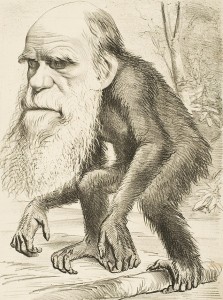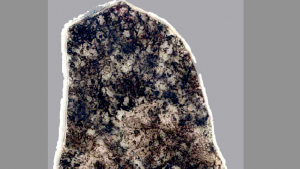It is widely accepted that the world around us is changing, and as a result the organisms that exist adapt with that change or are resigned to the fossil record. Evolution, it’s a fact of life… or is it? UCLA paleobiologist J. William Schopf, and colleagues, have discovered an organism that has remained relatively unchanged over a 2.3 billion year period. Meh, who needs evolution? These bacteria were discovered in the muddy sediments of the deep sea and represent the greatest lack of evolution ever seen!

Schopf and colleagues compared the communities of a recently discovered species of sulfur-cycling bacteria from deep sea sediments off the coast of S. America with fossilized communities 2.3 billion and 1.8 billion years old from Western Australia. Though these three communities of sulfur-cycling bacteria are separated by billions of years, they are identical in form, function, and metabolism.

At first observation these organisms would appear to be thumbing at Darwin’s greatest contribution. The theory of evolution suggests that as the environment changes, physically (e.g. disturbance) or biologically (e.g. competition), organisms respond by “evolving”. If adapting to change is the basic tenant behind evolution, than not evolving when the environment stays stable would be its null hypothesis. Whereas the surface environment changes fairly frequently (especially in geologic time scales), for these deep sea sediment microbes the environment with which they exist is relatively stable, and has been for billions of years. With little to no competition and a stable environment there exist no incentive for change, or evolution, in these communities. Having already perfectly adapted to the environment in which they exist, why change if there isn’t any pressure to?
So in essences these little guys validate the theory of evolution with their extreme form of evolutionary stasis, demonstrating that even over billions of years, without environmental pressure, a community of organism will remain the same! With these findings it’s possible that there are other non-evolved communities in other extremely stable locations on the earth. If/when those communities are discovered, we will be sure to report them! 😉
Until then you can read the full article of this awesome story in the Proceedings of the National Academy of Sciences.
Happy FSF!